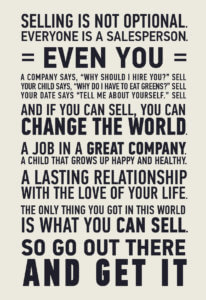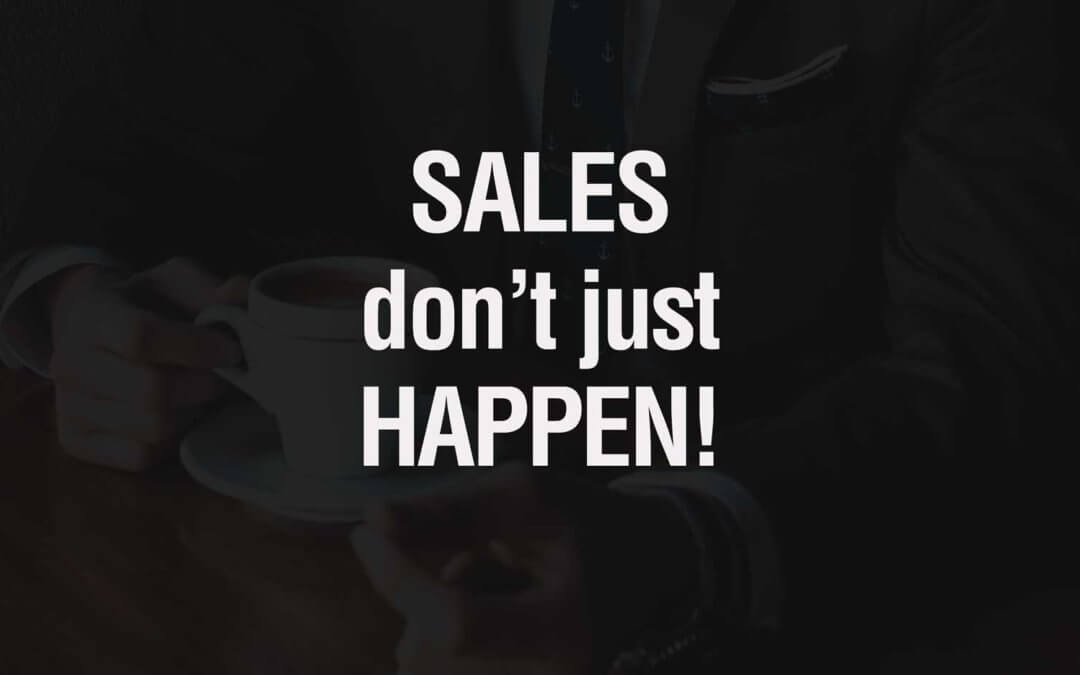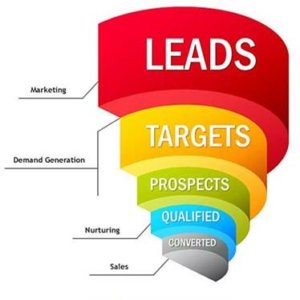What makes great salespeople great?

What makes great sales people great? The common misconceptions about salespeople can be tough to get over because they are so ingrained in our culture. It helps to see what successful salespeople actually look like. Most of the great salespeople aren’t all that slick on the surface, but they are great at discovering and solving problems. What makes them different?
I think there are 11 traits that make a successful salesperson here a 7 from my book.
Beliefs, Traits, and Habits of the Best Salespeople:
Desire. The desire to be successful is the number one feature of excellent salespeople. Folks with a strong drive to succeed usually have built upon a history of success.
They may have been good at sports, or bringing up a family.
They know what it means to care deeply about the goal and really go for it.
Desire leads them to find out everything they can about their product and their competitor’s product. In fact, their knowledge is one of their strongest assets.
Motivated salespeople will compete against themselves, not others. They strive to beat their own last target, cultivate additional clients, and achieve business.
2. Self Belief. Effective business people have a very strong self-belief. When they experience rejection, they understand that it is situational. A single loss does little or damage to their core self-esteem.
Instead of getting down on themselves, people with high self-esteem draw on all their knowledge and past mistakes to correct their course and move on.
Anyone in sales can achieve strong self-belief by developing a passion about their product or service. If you can turn your passion for your business into a core belief, you can sell your product to anyone. That is a sales mindset guarantee.
3. Persistence. Persistent folks do not give up easily, if ever. They see problems not as dead ends, but surmountable obstacles. How many rejections can you weather?
Numbers coming out of the Dartnell Corp. in the United States show that a sale in today’s market often goes through only after the tenth “No.” You read that right. The tenth “No.” We are up against a tough economic environment, and unless we are persistent and believe in what we sell, we will give up after about the third time someone tells us “No.”
Learn when to back off and not overplay the persistence card, but do not ever roll over and give up. In this brave new world where the power is increasingly in the hands of the buyer, we have to create marketing and sales strategies to overcome our reluctance to try one more time.
4. Purpose. Many great salespeople find greater purpose in their work than simply completing the job at hand. They might want to help their clients, fellow workers, and teammates build a great business environment to work in, or they may find value in training others by passing on their knowledge to employees.
Motivations can be as basic as feeding the family, affording that extra vacation, or getting the kids through college.
To folks invested in these kinds of outcomes, money and success are by-products of the efforts they make.
This is an important distinction, for finding meaning in your work will keep you balanced in your business. Work cannot be your sole purpose.
We hear too many stories about business people burning out by dedicating themselves solely to their businesses, day in and day out. In the long run, this approach provides diminishing returns. Remember why you are working so hard.
5. Goal Orientation. The best salespeople are people who set real, attainable goals, weekly, monthly, and annually. They measure everything they do, and believe strongly in revisiting and setting new goals all the time, not just once a year
A goal might be as simple as beating the business turnover from last year, or building some training and sales goals in the company for the next six months. Many people I work with struggle with goal setting. I advocate aligning your goals with the problems you are trying to solve.
6. Accountability. Great salespeople do not participate in what we call “the chicken run.” The “chicken run” happens when the salesperson disappears from the buyer’s sight as soon as the deal is sealed.
Successful salespeople never seal the deal and then fail to follow up with service.
If the product does not work, they are not too “chicken” to go back and make it right. If things do not work out well for the client, they know they need to jump back in there and help the client realize his or her expectations.
These folks always work it out and fix the problems that come up.
7. Willingness to Learn. Strong salespeople seek help and guidance from people they admire and trust.
They may work with a coach, confide in a colleague, or consult a manager. They need someone they can feel comfortable with so they can talk through their fears and doubts.
Take The Sales Mindset Challenge here and discover how you rate with your sales mindset you might be surprised. Its a simple list of questions that rate your beliefs and traits. Have fun.
Good Selling.
P. S. Are You Utilizing The Most Profitable, Up-To-Date AND Proven Sales Lessons To Grow Your Business Right Now, In Today’s Market?
Changing your Sales Mindset coming soon.





